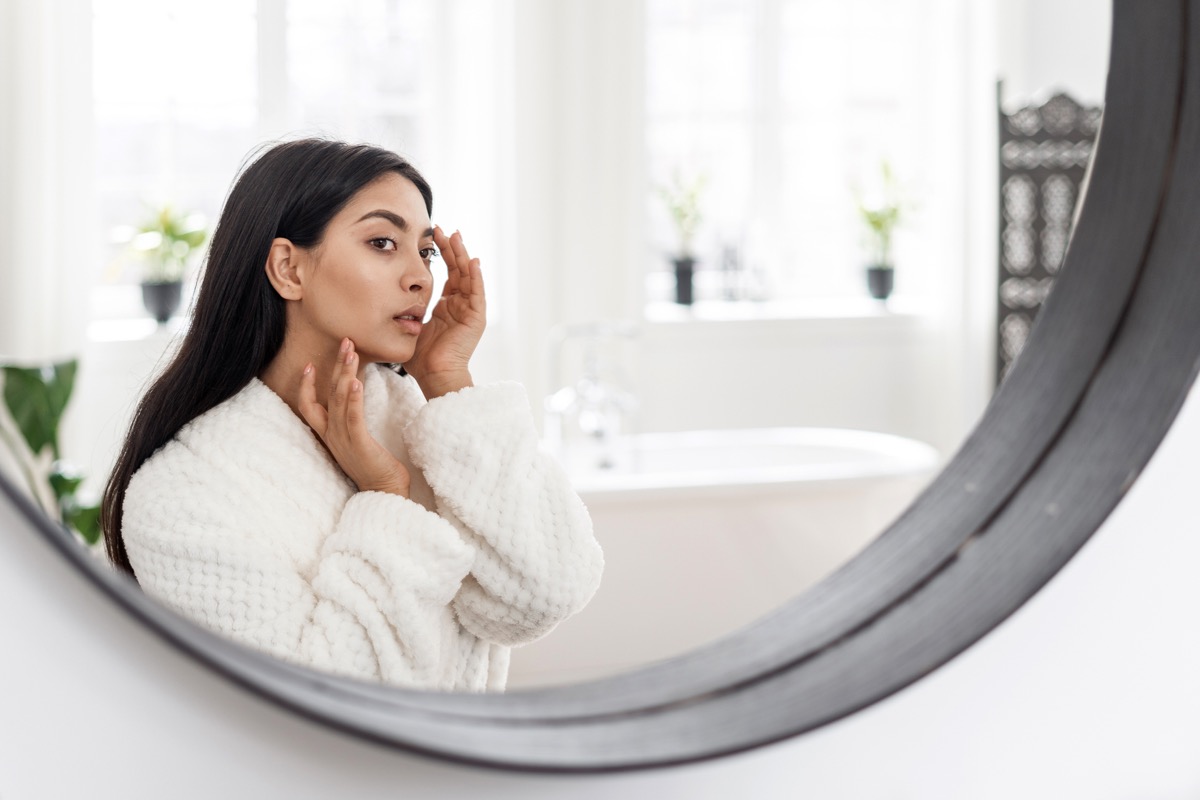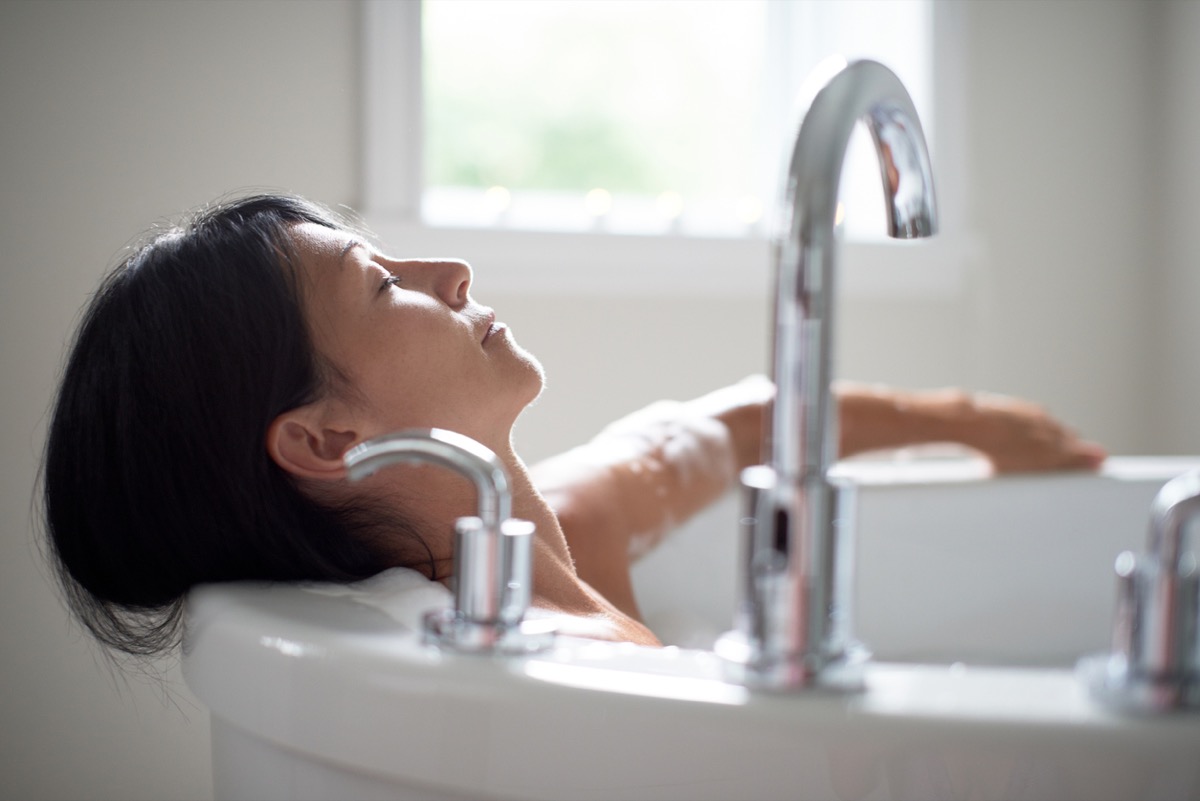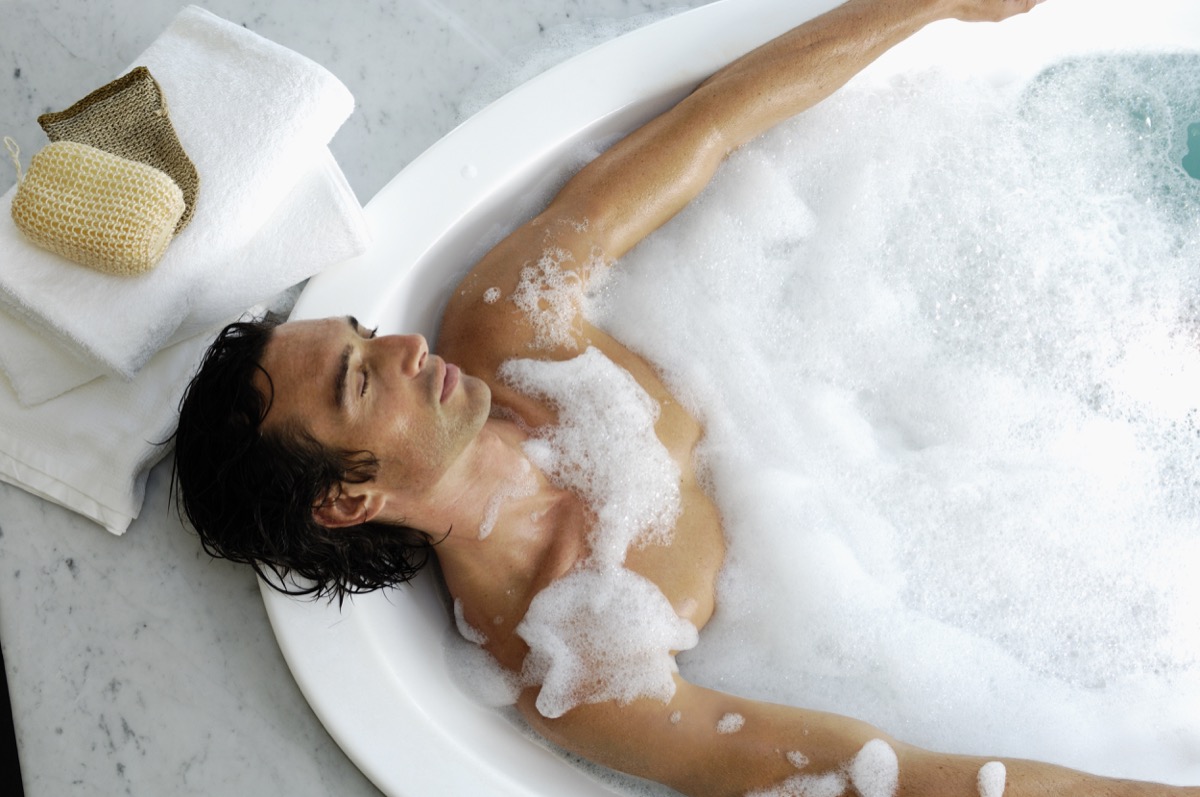4 Reasons to Take a Bath Instead of a Shower, According to Health Experts
Not a fan of a hot soak? These benefits might make you reconsider.

For many people, the choice between taking a bath or a shower comes down to a simple matter of preference and convenience. Yet experts say each has its own set of health benefits, which you may want to weigh before settling into any one routine.
We reached out to health experts to find out which perks of bathing may convince you to swap your shower for a soak—and found out that regular baths can enhance your health in ways that showers don't. Read on to learn the four biggest benefits of baths—and what you stand to gain by making the switch from showers.
READ THIS NEXT: The FDA Says These Bathroom Soaps Expose You to "Unnecessary Chemicals".
1
Baths promote exfoliation and support skin health.

Soaking in a tub can help hydrate, cleanse, and even exfoliate your skin. "People who take showers tend to spend only a few minutes under running water to rinse off the lather," says Nancy Mitchell, RN, a registered nurse and a contributing writer at Assisted Living. "However, taking a bath requires you to soak in the water for an extended period. This allows the water to lift dirt and dead cells off your skin surface," she says. Additionally, she notes that baths offer the opportunity to add exfoliating epsom salts, skin-soothing bath bombs, or nourishing oils.
However, it's important to note that the American Academy of Dermatology notes that you should opt for a lukewarm bath rather than a hot one, since the latter can dry out your skin.
READ THIS NEXT: Doctor Who Hasn't Showered in Years Thinks Others Should Join Him.
2
Baths can improve circulation and help relax your muscles.

If you suffer from sore or strained muscles, taking regular warm or hot baths could help you soothe them. "Soaking in a warm bath can help to relax the muscles and ease any aches and pains," says Elliott Torsney, a certified personal trainer for Den of Fitness and a registered dietitian nutritionist based in Tennessee. He explains that this is in part because warm or hot baths can help dilate blood vessels and improve circulation, which relaxes the muscles and increases blood flow.
3
Baths can help you de-stress.

We all know the feeling of sinking into a hot bath after a long, stressful day. Torsney says this is a great way to reduce stress levels and improve your mental well-being.
In fact, some studies have found that taking regular hot baths can have a mood-boosting effect on those suffering from depression. "Evidence suggests that hyperthermic baths (HTB) and other forms of whole body hyperthermia (WBH) have antidepressant effects, mediated through changes in circadian functioning and temperature physiology, although the underlying mechanisms remain unclear,' says one such study, published in the journal BMC Complementary Medicine and Therapies.
For more health news sent directly to your inbox, sign up for our daily newsletter.
4
Baths can improve your sleep.

Thanks to their de-stressing effects, taking a hot bath at night could also help you enjoy a better night's rest, some studies show. "Taking a warm bath before bed can help to relax the body and mind, making it easier to fall asleep," says Torsney.
And it's not just a placebo effect—the science appears to be sound. "We know that your core body temperature needs to drop by about 2 to 3 degrees Fahrenheit to initiate good sleep and then maintain deep sleep," Matthew Walker, a neuroscientist and the author of Why We Sleep explained while speaking with NPR. "The way it works is this: For you to get your heat out of the core of your body, you actually need to release that core heat through the outer perimeter surfaces of your body, namely your hands and your feet. What happens with a bath… is you actually bring all of the blood to the surface," he explains. "Your hands and your feet are wonderful radiators of that heat. So you are essentially like a snake charmer—you are charming the heat out of the core of your body to the surface of your body."





















